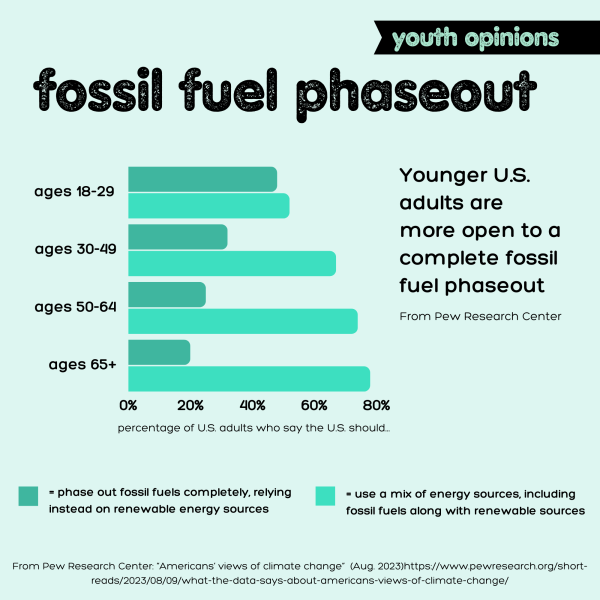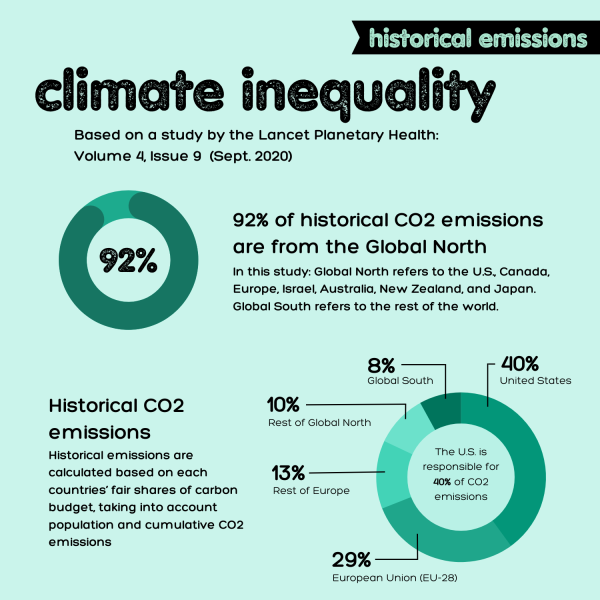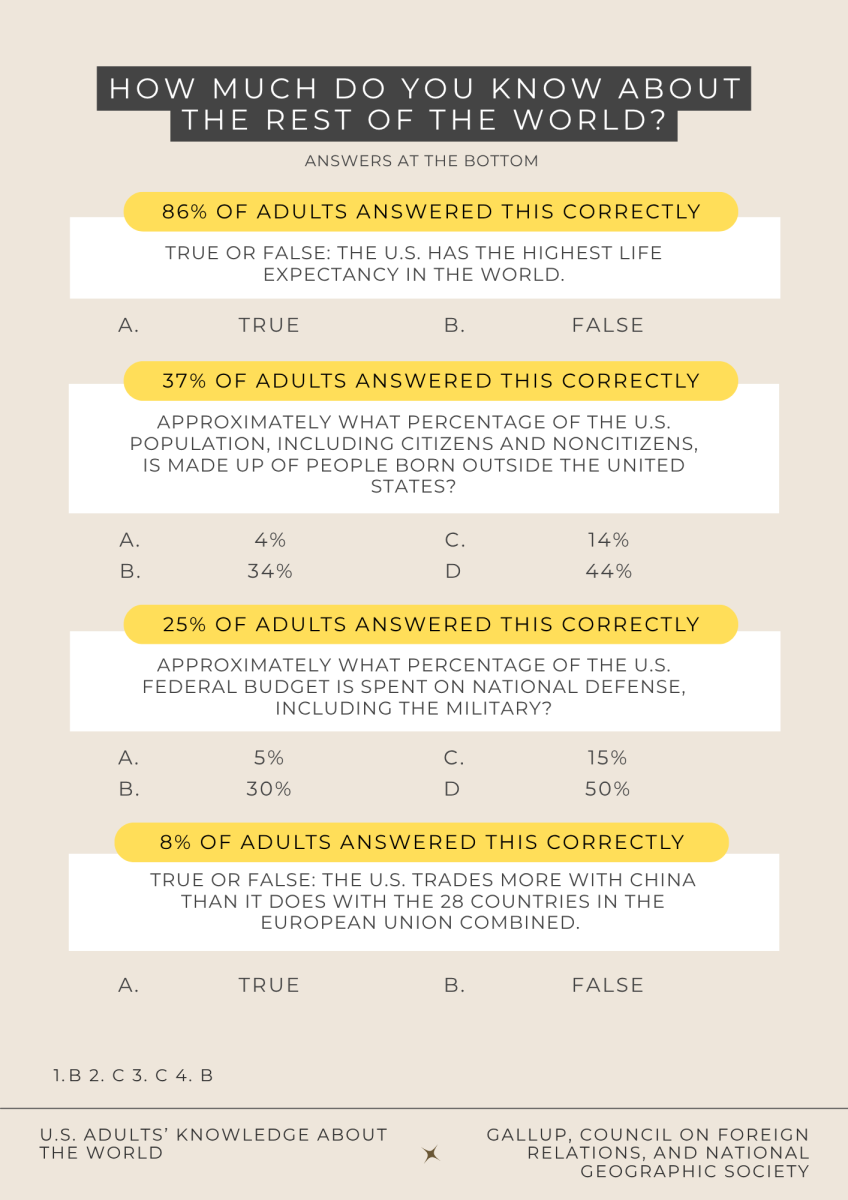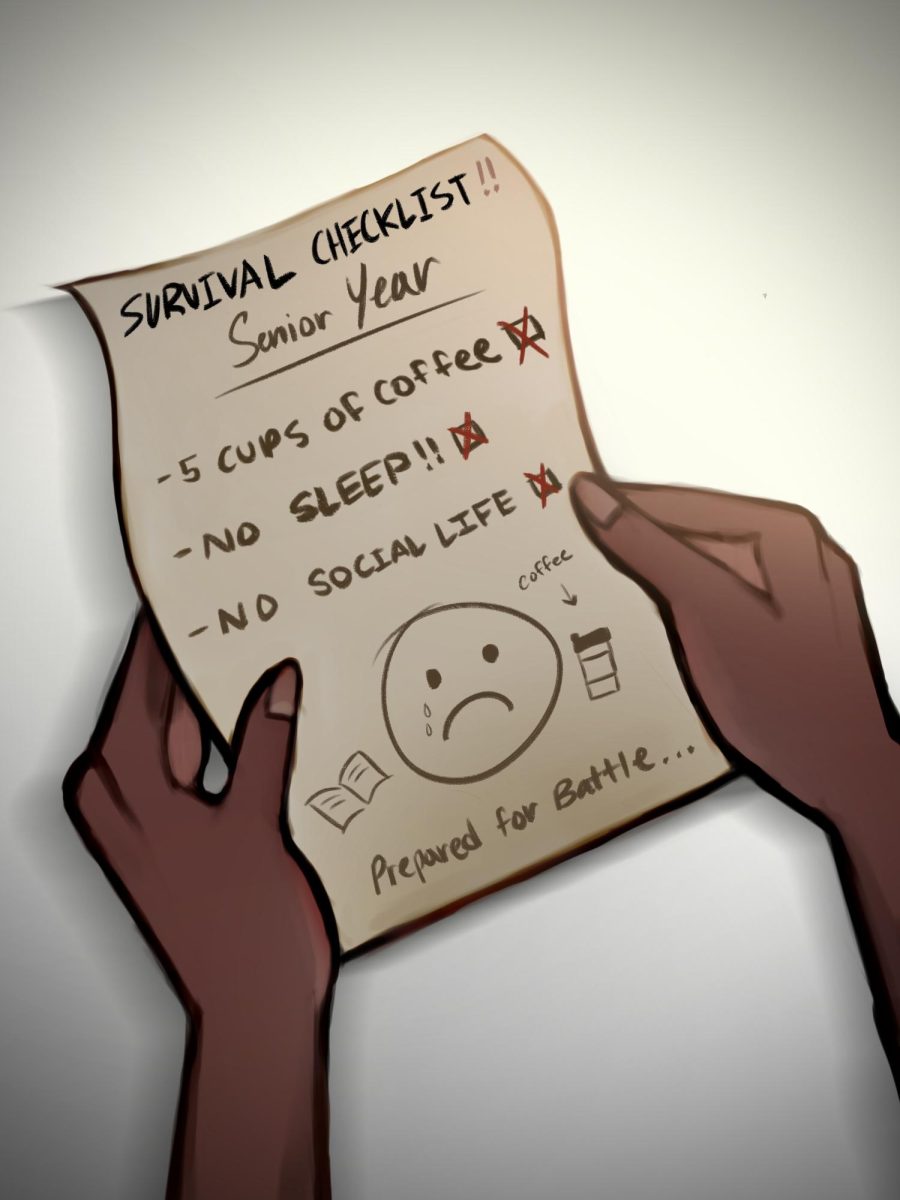Recycle. Turn off the lights. Bike to school.
These are the things that people, especially young people, are told to do to stop climate change, save the planet and reduce their carbon footprints. It’s true recycling and reducing energy use, amongst other things like eating less meat, flying less and planting native trees, are good for the planet. But at this point, it’s not just about what’s good for the planet.
The world is facing a climate crisis. Individual climate actions are fine, but crises are only resolved with changes from the greater system. Between the world’s rising sea levels and the little time left to save what the climate crisis has not already consumed, drastic changes on not just an individual level, but a collective and systemic level are needed.
The global carbon budget is the amount of CO2 the world can emit while still maintaining a livable planet by preventing the most irreparable effects of a warming planet. Despite the world needing to cut fossil fuel emissions in half by 2030 and achieve net-zero by 2050 to honor the carbon budget, humanity has been spending this carbon budget by burning fossil fuels at an alarming rate.
With today’s emissions, the carbon budget will be out by the end of the decade.
Emitting more CO2 than the carbon budget allows means tipping points will be reached, irreversible effects will be triggered and people will suffer worldwide. For example, there will be an estimated 1.2 billion climate refugees by 2050. One in four children could live in areas with extreme waters shortages by 2040.By 2050, 20% of the planet could be “barely livable” due to extreme heat, compared to just 1% of the planet today. And these are only some of the effects that could take place if business as usual continues.

Already, the effects of climate change are being seen. The Canadian wildfires earlier this year were made at least two times more likely by human-caused climate change. In 2023 alone, as of Oct. 10, there have been 24 billion-dollar climate disasters in the U.S., meaning each disaster cost the U.S. at least a billion dollars. From 1980-1989 there were 33 billion dollar climate disasters in total. However, due to a warming planet, in just the last three years, there have been 60 billion-dollar disasters.
Unfortunately, people today believe that small adjustments to everyday life can get the world out of this mess. But this is just not true. It will require more than today’s definition of climate action to avoid the catastrophe of a spent carbon budget.
It’s not that recycling and home-by-home energy reduction is a bad thing. Everyone should acknowledge their impact on the environment and do what they can. But the bigger picture also must be kept in mind: systemic change is needed.
The concept of a single person’s impact on the environment, or individual action, is called the carbon footprint. The concept of the carbon footprint was invented by an oil and gas company: British Petroleum (BP). And in the twenty years of BP’s carbon footprint, the concept spread and created the belief that the blame of climate change is on individuals—and less on fossil fuels industries.
In a survey of over 1,000 U.S. adults by Pew Research Center, 57% said ordinary Americans were doing “too little,” but less —55%— said the actual energy industry was doing “too little.” Meanwhile, the fossil fuel industry happily continues selling, burning and drilling for their coal, oil and gas and greenwashing their profits like there’s no tomorrow.
But there is a tomorrow. And our generation is going to live to see it. That is why young people are more likely to want to phase out fossil fuels. The youngest generation will live on this planet in 2050 no matter the shape it’s in.

To save this generation, all individuals will have to make changes to their everyday lives, especially the more privileged who have the largest carbon footprints. However, decision-makers and the energy industry also need to take action to make sustainable options the only options. The U.S. is responsible for 40% of historical CO2 emissions, meaning the U.S. needs to be taking drastic steps to cut carbon. To start this process, the best thing an individual can do is get involved with the bigger movement to reach more people. Whether it’s advocating for climate legislation or spreading the knowledge of the climate crisis, collective action is more effective and more rewarding.
Collective action often begins with individual action. Both collective and individual actions are needed to mitigate the effects of climate change. But only one of the two is promoted in society at the moment. No one can say what the world will look like in 2050. But to avoid the literal burning of the world and really stop the climate crisis, it’s time to consider the big picture. Only without the greenwashing and the false solutions will the real picture finally be seen. The real picture is action for a systemic change—because that is what it will take to put out the flames.









